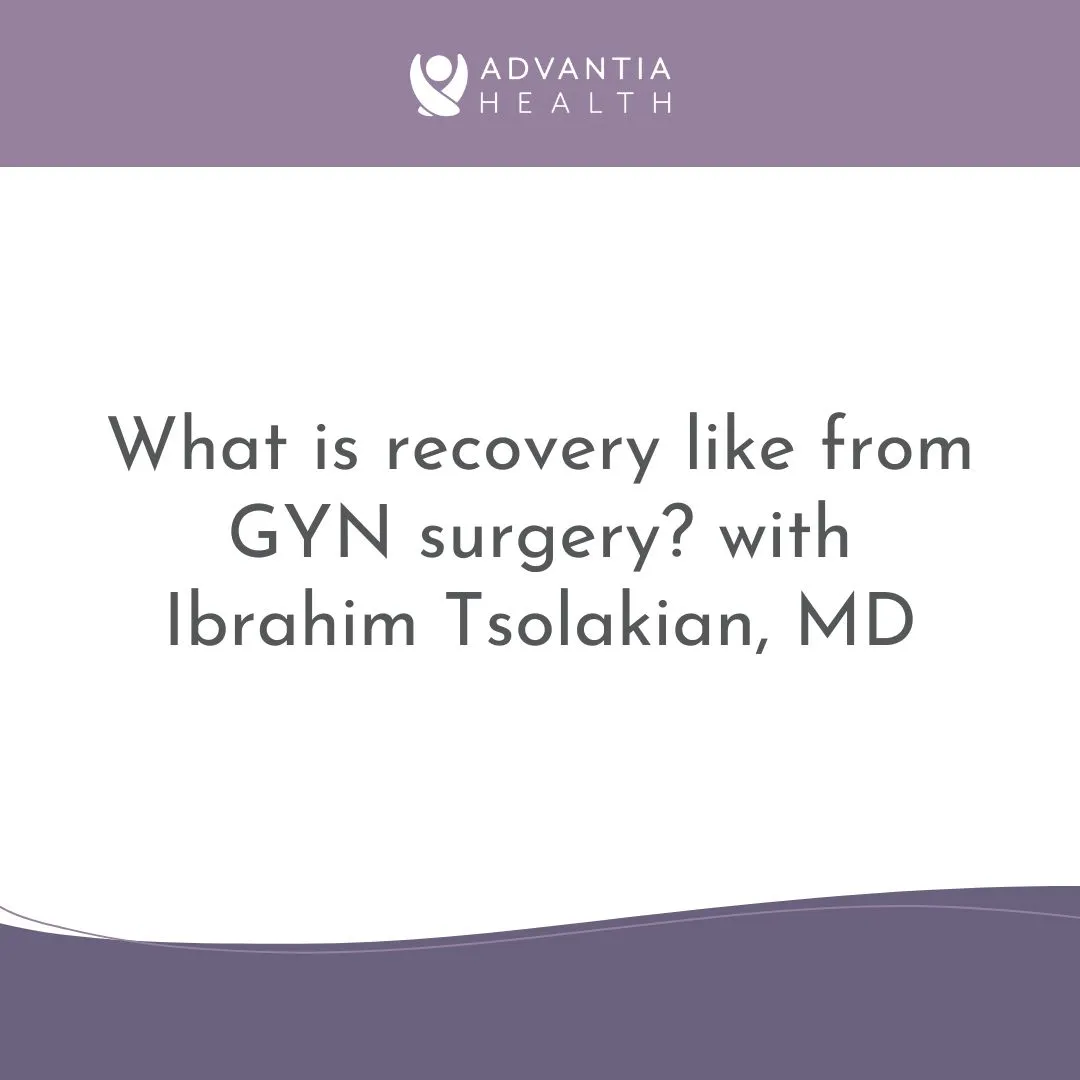
Published on: 29 January, 2024
Read Time: 3 min
Gynecologic surgery requires careful consideration of the recovery process. To discuss recovery from gynecologic surgery, we reached out to Dr. Ibrahim Tsolakian from Susquehanna OBGYN & Nurse Midwifery of Advantia.
Recovery from GYN Surgery
Recovery from gynecologic surgery is a multifaceted process that involves physical healing, emotional well-being, and personalized care. Dr. T emphasizes that, each patient’s recovery journey is unique. It may be influenced by the type of surgery, individual health factors, and the complexity of the procedure.
Furthermore, research published in the Journal of Gynecologic Surgery echoed this sentiment, emphasizing the need for personalized postoperative care tailored to the individual patient’s needs. This personalized approach ensures that recovery accounts for not only physical healing but also emotional and psychological well-being, ultimately contributing to a more holistic and successful recovery.
Physical Healing and Rehab
Understanding the physical aspects of recovery is crucial, and research indicates various key considerations. According to a recent study in the International Journal of Gynecology & Obstetrics, a structured rehabilitation plan following gynecologic surgery can significantly improve postoperative recovery outcomes.
Dr. Tsolakian highlights the importance of gradual physical rehabilitation, emphasizing that, rebuilding strength, managing pain, and adhering to the recommended postoperative activities play a pivotal role in ensuring a smooth recovery.
Moreover, recent advances in postoperative pain management, including enhanced recovery after surgery (ERAS) protocols, have shown promising results in promoting faster recovery and reducing the need for prolonged opioid use post-surgery.
Emotional and Psychological Well-being
Recovery from gynecologic surgery can be emotionally challenging. The emotional and psychological aspects of recovery after gynecologic surgery are equally critical.
A study in the Journal of Women’s Health highlighted the prevalence of psychological distress in the postoperative period, emphasizing the significance of emotional support in the recovery process. It’s crucial to provide patients with the necessary support and resources to navigate their emotional journey as they heal physically.
Postoperative Care and Follow-up
The postoperative period necessitates attentive care and diligent follow-up. Recent research published in the Journal of Minimally Invasive Gynecology underlined the importance of structured postoperative care with a focus on early detection of complications and proactive management.
Also, we want to stress the significance of scheduled follow-up appointments. Regular postoperative visits allow us to monitor the healing process, address any concerns, and provide patients with the reassurance and guidance they need as they progress through recovery.
Empowerment Through Knowledge
Knowledge is empowering, and patients benefit from understanding what to expect during their recovery. A study in the Journal of Gynecologic Surgery underscored the positive impact of patient education on postoperative recovery, stating that informed patients demonstrated better adherence to postoperative care instructions and reported higher levels of satisfaction.
Additionally, educating patients about their recovery process, potential milestones, and signs of complication empowers them to actively participate in their healing journey. Recovery from gyn surgery represents a dynamic process that involves physical, emotional, and psychological components.
From physical rehabilitation to emotional support and patient education, a well-rounded approach to recovery fosters an environment that promotes healing and well-being. We want to ensure that patients receive the support and guidance they need during this critical phase.





